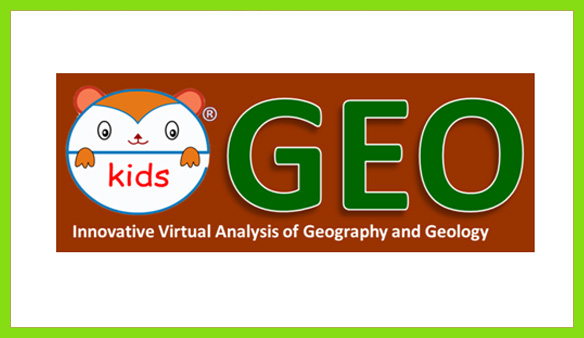E-kids Geographic Skill

Earth allows you to stand. Let it stand the way it is.
An in-depth Virtual Analysis of Geography and Geology by Kids with innovative projects
Geography plays a leading role in developing the objectives of environmental education. Through geography lessons, pupils must learn about the major environmental and developmental problems (e.g. climatic change, deforestation, land degradation and desertification, depletion of natural resources, loss of biodiversity, overpopulation, food security, drought, poverty, and urban decay) through issue-based learning.
They must be given opportunities to explore, how these issues relate to their everyday lives, and how they impactthe quality of the physical and social environment. Teachers must promote a holistic outlook, by promoting a multidimensional (e.g. social, political, historical, cultural, aesthetic) study of the environment problems on a variety of scales. Environmental education enables students to understand, how people modify, respond to, and conserve their environment.
Geography skills
Geographic skills fall into several categories:
Geographic resource interpretation skills include:
- Using maps, photographs, diagrams, cartoons, images, statistics, keys, graphs, text, models, internet, speeches, surveys, films, television, video clips and GIS to explain geographic information.
Geographic resource construction skills include:
- Presenting spatial data – may include, but is not limited to, drawing sketch and precise maps, using GIS layering and/or other multi-media to present specific geographic information
- Presenting statistical data – may include, but is not limited to, constructing graphs, tables, performing calculations based on data
- Presenting visual data – may include, but is not limited to, taking photographs or drawing pictures, cartoons, multi-media
- Complex presentation – may include multiple forms of data for example Visual, spatial and statistical combined.
Communication skills include:
- Being able to present geographic information in a variety of forms such as essays, paragraphs, poems, visuals, models, films, PowerPoint presentations, speeches, games, puzzles, blogs and graphic organisers.
Social skills include:
- Being able to work in groups and being empathetic, appreciating different values, perspectives and viewpoints on different aspects of geography, establishing and justifying personal value positions, contributing and participating in the community.
Fieldwork skills include:
- Being able to gather information from the field using a variety of techniques such as surveying, questionnaires, field sketching, measuring, photographing, interviewing and observing.
Geographic skills assessment
- Students will be engaged in programmes of learning that develop geographic skills.
- These skills are assessed in a specific external standard at each NCEA level and also in the research internal standard. Only selective skills will be assessed in the external examination, as this mode of assessment is not suitable for all geographic skills.
